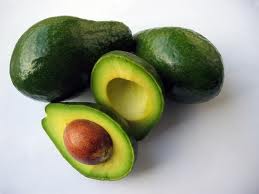
Avocado has no cholesterol
Does an avocado have cholesterol, and if so, how much? How does avocado affect both HDL and LDL cholesterol levels in the body? In order to answer these questions, let’s take a look at some of the facts about avocado cholesterol.
Avocados do not contain cholesterol
The most important thing that you need to know about avocados is that they do not contain any cholesterol at all. That’s right, zilch, zero cholesterol. All cholesterol comes from food derived from animal sources and none from plant sources.
No plant-based food contains cholesterol, and that means that you may eat as much fruit and vegetables, including avocado, as you like and it will not increase your cholesterol levels, at least your bad cholesterol levels.
Avocados may increase HDL cholesterol
In fact, eating avocado may well help you reduce your cholesterol levels. Avocado is high in monounsaturated fat, also called oleic acid, which is known to increase levels of HDL cholesterol which is the good cholesterol. HDL helps to fight cardiovascular and heart disease.
Foods high in monounsaturated and polyunsaturated fat, which largely come from fruits and vegetables such as avocado and olive oil, tend to decrease bad cholesterol as well as increase good cholesterol. They should be included in a healthy diet.
Why the confusion over avocado cholesterol?
Much of the confusion over cholesterol in avocados stems from the fact that avocados are very high in fat content, and many people mistakenly think that avocados are therefore unhealthy or will somehow make them fat. While it’s true that avocado is high in calories, because fat contains more than double the amount of calories per gram than both protein and carbohydrates, the fact is the fat found in avocados is very good for you.
A healthy diet includes about 30% of its daily calories from fat sources, preferably from plant-based that which comes from vegetable oils and fresh fruit and vegetables. The unhealthy fat sources which also increase bad cholesterol levels, come from animal fats and those are the type that should be avoided in a healthy diet.
Vegetable fats are liquid at room temperature, whereas animal fats are solid at room temperature and a diet high in animal fats and cholesterol can lead to an increased risk of hardening and blockages of the arteries.
Avocados have many vitamins and antioxidants these
Avocados also have many enzymes and vitamins that are good for your health such as vitamin C and E, potassium, and many antioxidants. Also, they are very high in natural fiber with about 7% of their overall content being fiber. Fiber turns to a paste like material in the colon and acts as a sort of sponge to soak up excess cholesterol, and this is another way that avocados can help to lower your cholesterol.
Conclusion
Avocados are high in fat and therefore do have a high calorie count, so they should be eaten in moderation in order to control weight. But avocados do not contain any cholesterol at all, and in fact will help to improve your levels of good cholesterol and decrease the levels of bad cholesterol in your blood stream. They therefore should make a healthy appearance in any good nutritional plan.
Do You Love Avocado?
 |  |  |
| Avocado Oil | Avocado Saver | Avocado Slicer and Pitter |


Anonymous
Thank you! This article was extremely helpful in explaining the cholesterol, calories, and health benefits of avocados.